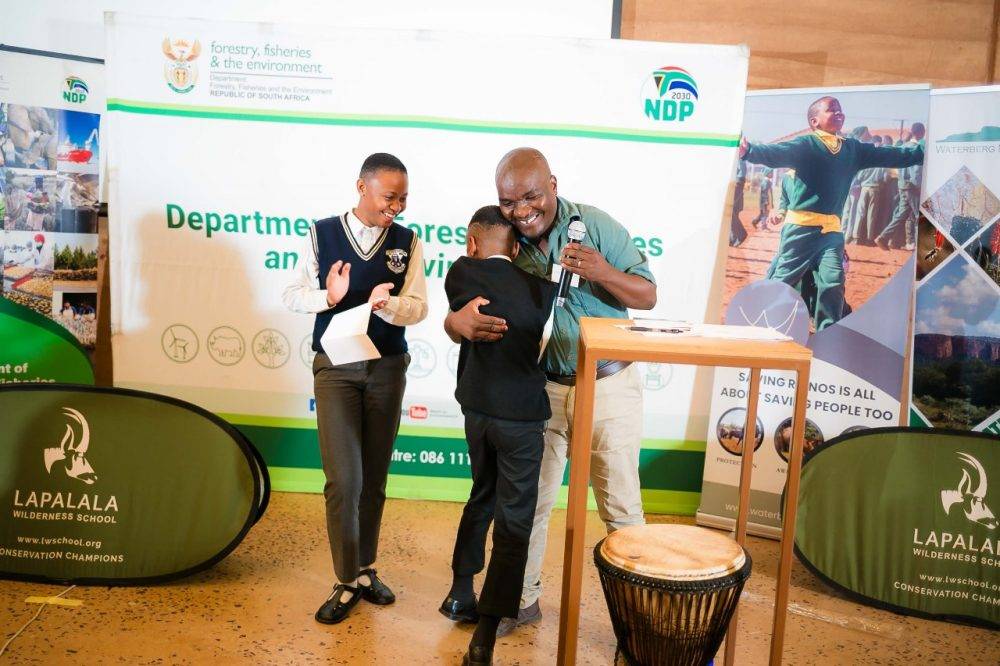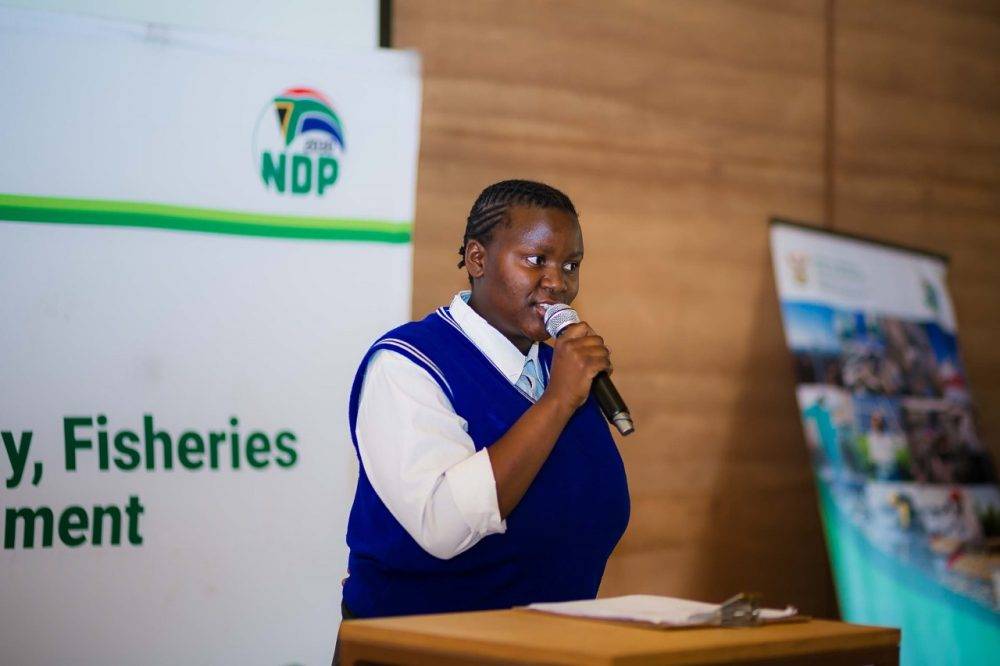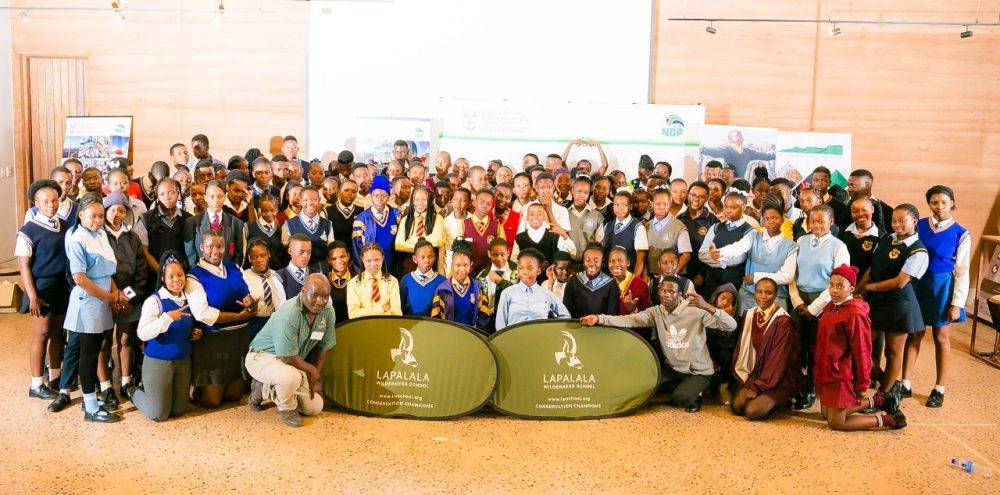The department of forestry, fisheries and the environment awarded a four-year bursary to two learners, one of whom is Kgaugelo Marema, who is in grade 12 at Mapanolla Secondary School in Mokopane.
Every year, in the heart of Limpopo’s Waterberg region, the Lapalala Wilderness School brings grades 10 and 12 learners together to raise awareness about one of the world’s endangered species — the rhino — to coincide with World Rhino Conservation Day on 22 September.
Rhinos are considered ecosystem engineers because their grazing habits help shape the landscape and support biodiversity. The animals are also key to ecotourism — responsible tourism that looks after the environment and people — drawing visitors from around the world and generating much-needed revenue for local economies.
At this year’s event the department of forestry, fisheries and the environment awarded a four-year bursary to two learners, one of whom is Kgaugelo Marema, who is in grade 12 at Mapanolla Secondary School in Mokopane.
“When you go to a competition, you go with two mindsets — one is for disappointment and the other is for winning,” Kgaugelo said. “So when they called out my name to receive the cheque, I felt like the world opened a door of success for me.”
 Mashudu Makhokha gives Grade 10 learners prizes for their outstanding speeches on rhinos
Mashudu Makhokha gives Grade 10 learners prizes for their outstanding speeches on rhinos
She said winning the competition instilled in her the confidence to achieve anything she sets her mind to, regardless of her background or circumstances.
For Kgaugelo, the bursary is not just an opportunity for higher education but also a pathway out of problems in her community, which include substance abuse and poverty, and a brighter future to which she can hopefully make a contribution.
The school’s director, Mashudu Makhokha, highlighted the effort the learners put into their presentations despite the hardships they face, including how some had to borrow school uniforms just to participate in the event, a stark reminder of the socio-economic inequalities still prevalent in South Africa.
“Even when you see the presentations, it is a true reflection of an unjust society because we don’t have equal resources or exposure,” Makhokha said.
“But we are very grateful to have all these kids who have gone above and beyond against all odds. Uniform or no uniform, they prepared a speech in a language that is not their mother tongue, but they have done it.”
 Kgaugelo Marema was awarded a four year bursary by the department of forestry, fisheries and the environment.
Kgaugelo Marema was awarded a four year bursary by the department of forestry, fisheries and the environment.
He said the bursary not only provides financial relief but also offers these learners a future free from the immediate concerns of tuition fees and other financial concerns.
“It is very difficult to go to university without knowing where the money that will cover your tuition fees will come from, particularly if you look at your mom who is not working.”
In addition to covering four years of university education, the bursary includes two years of work experience, ensuring that the students are well-prepared for their future careers.
“Knowing that their tuition fees are covered and that they have two years of work experience waiting for them is such a joy. It means that they can walk tall into university, ready to succeed,” Makhokha said.
 The Lapalala Wilderness School brings grades 10 and 12 learners together to raise awareness about one of the world’s endangered species — the rhino
The Lapalala Wilderness School brings grades 10 and 12 learners together to raise awareness about one of the world’s endangered species — the rhino
The school’s long-term vision is to see more graduates from underprivileged communities become zoologists, ecologists and scientific services managers, contributing to wildlife conservation efforts in the areas they come from, he said.
Its focus is to equip young people with the tools to protect and preserve South Africa’s natural heritage.
The urgency of rhino conservation is underscored by recent statistics released by the department, which show that in the first half of this year, 229 rhinos were poached, only slightly down from 231 during the same period in 2023. Of these, 191 were killed on state properties and 38 on private reserves.